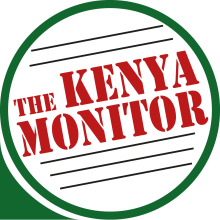The rise in the use of the internet in Kenya has increased the need to learn about the do’s and dont’s when engaging through the various social media platforms like Facebook, Twitter, Blogs, Linkedin and Instagram among others to ensure one is within the law. This informed a workshop themed “The law and Internet in Kenya” held at the Nailab on 6th March 2015 led by Mugambi Laibuta, an Advocate of the High Court of Kenya.
What are your rights as a social media user or blogger? @BAKE_ke #iFreeKE
— Olé Laibuta (@Olez) March 6, 2015
Social media users must protect themselves from defamation suits @BAKE_ke #iFreeKE >>>> http://t.co/3GkOKRmSir — Olé Laibuta (@Olez) March 6, 2015
The conversations started with the need to define Hate Speech. This could have been informed by the proliferation of cases against bloggers. The government has either held bloggers for interrogation or charged them in court or convicted them on various charges related to hate speech.
The Law and the Internet…. The great man @Olez has started off by defining what is hate speech #iFreeKe
— Kachwanya (@kachwanya) March 7, 2015
‘What is hate speech? Speech that incites violence or a certain negative action. Insults are not hate speech’ @Olez #IfreeKE — james wamathai (@uqweli) March 7, 2015
It soon became clear that how to behave when police arrest you is crucial to determining your fate.
If you are taken to cop station under charge & caution ask if you are being arrested. Don’t write statement b4 consulting lawyer #Ifreeke
— Rayhab Gachango (@potentash) March 7, 2015
Online content creators need to ensure that they establish publishing standards to inform their professionalism. This includes issues on ethics and other rights that inform what can be published in their blogs.
As a blogger do you have publishing standards – not to divulge personal information about other persons without permission etc ? #iFreeKE — Juliet Maruru (@sheblossoms) March 7, 2015
The other critical issue is the need to ensure that you do not infringe on others copyright.
Always credit the source of information or content you don’t own. Best policy is to ask for permission to republish. #iFreeKE
— Juliet Maruru (@sheblossoms) March 7, 2015
Where allegations or unconfirmed reports or issues arise, your choice of words counts.
Hmmmm. Mainstream journalists use the word ‘allegedly’ quite a bit. Bloggers just go ham. Same difference? #iFreeKE — BAKE (@BAKE_ke) March 7, 2015
Social media usage has implications beyond writing a post or comment. Practices like liking a comment and retweeting them have grave repercussions.
Take Note RT @iFreedomsKE: Repetition of a rumor is libel in itself hence you are culpable as the first person who made the comment #iFreeKE — Francis Waithaka (@waithash) March 7, 2015
Retweeting is republishing, so when you retweet what is not true then you are as liable as the original Tweep..RT is an endorsement #iFreeke
— Kachwanya (@kachwanya) March 7, 2015
So yes a retweet can make you party or an accomplice to defamation or hate speech. #iFreeKE — Juliet Maruru (@sheblossoms) March 7, 2015
“@BAKE_ke: Re-tweeting something is already endorsement as per the law – @Olez #iFreeKE” so you cant say retweets are not endorsement — Rayhab Gachango (@potentash) March 7, 2015
In addition, checking whether your creativity is original goes a long way in ensuring you do not infringe on others intellectual property.
http://t.co/cGye36p0Lq offers trademark users the opportunity to check images you R developing to ensure you do not infringe on IP #iFreeKE
— KenyanPoet (@Kenyanpoet) March 7, 2015
Even when doing campaigns where you generate content for clients, intellectual property issues can also arise.
In paid campaigns, have everything in a contract that stipulates clearly who owns the intellectual rights to the content. #iFreeKE — Shiko-Msa (@Shiko_Msa) March 7, 2015
And when having fun over an image, be careful as it may land you in trouble
Can memes get you in trouble? Yes you can be taken to task if a meme grates someone/defames and they take offense. #iFreeKE
— Shiko-Msa (@Shiko_Msa) March 7, 2015


[…] first training was carried out in Nairobi on 7th March with 4 more to be carried out in Nakuru, Mombasa, Nyeri and Kisumu in the course of this […]